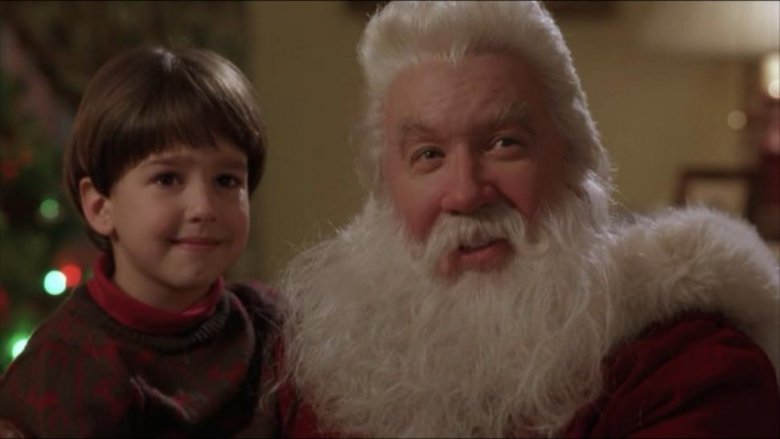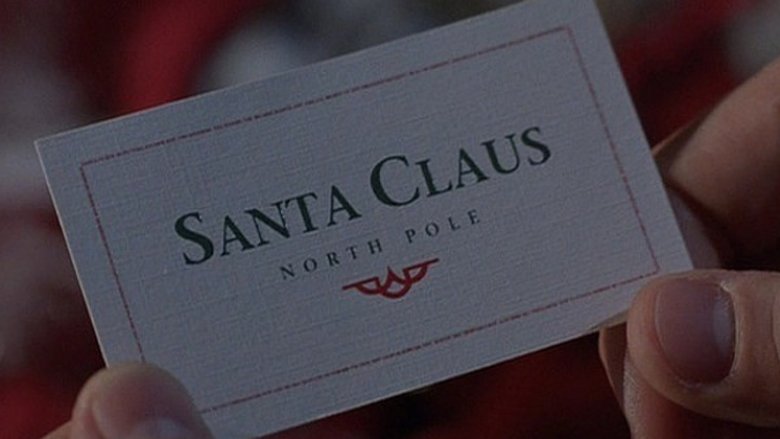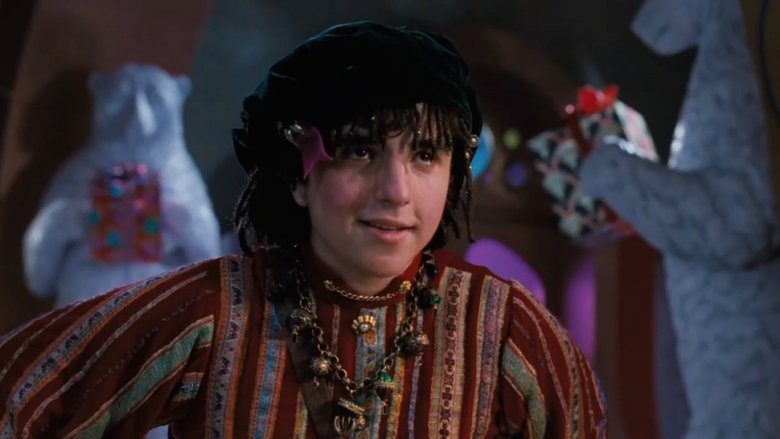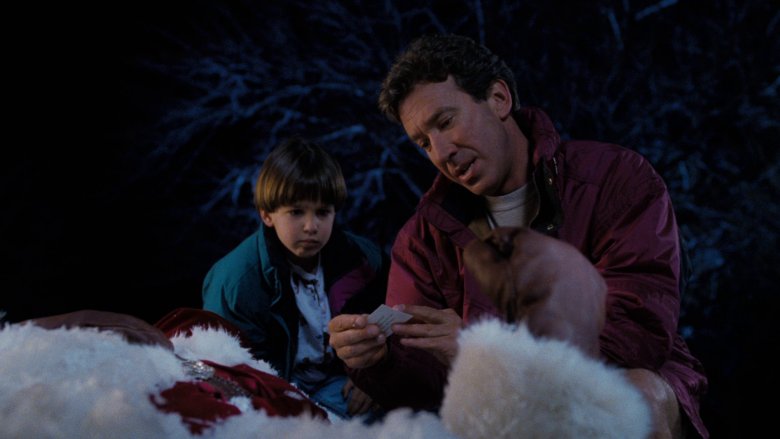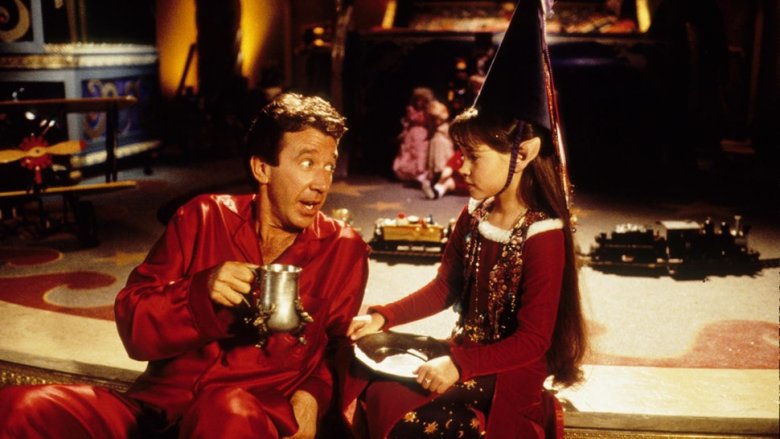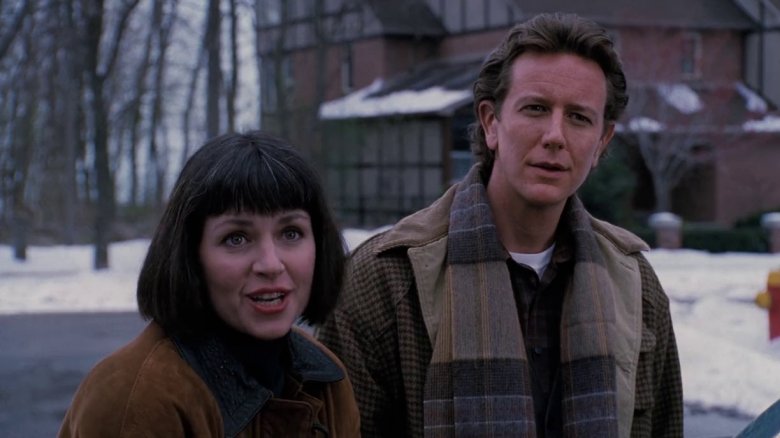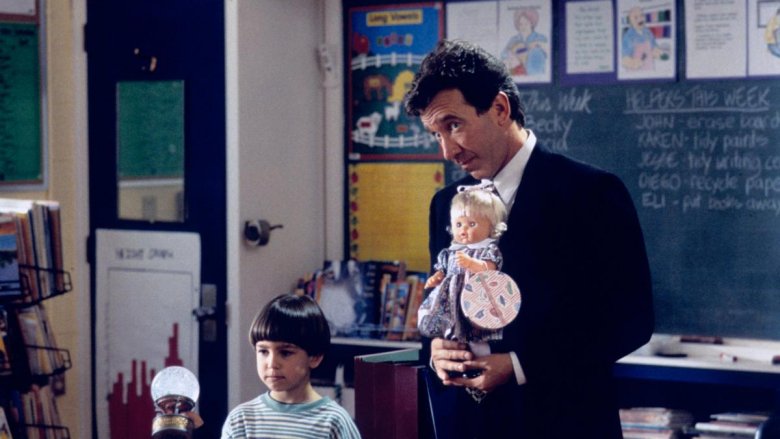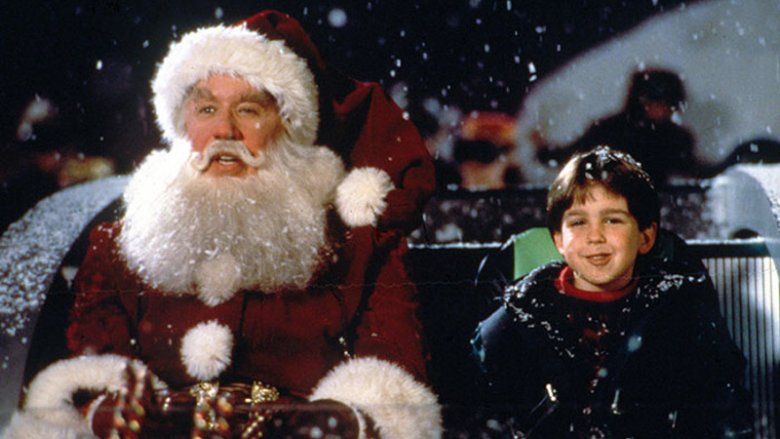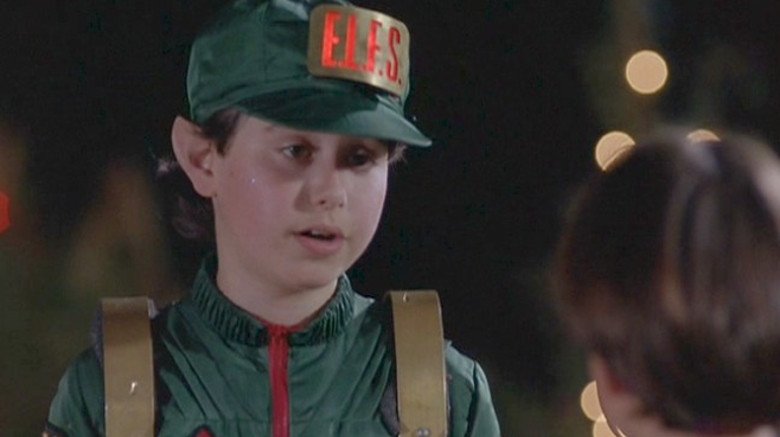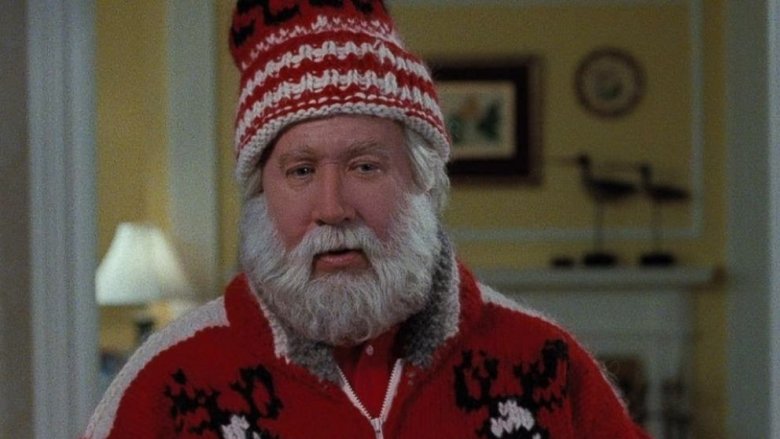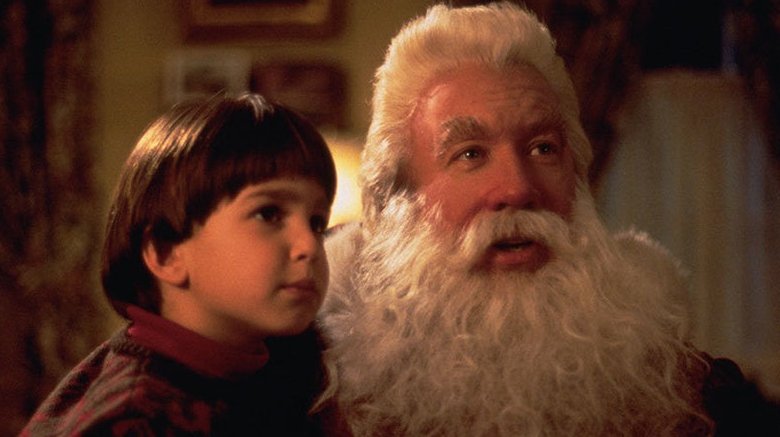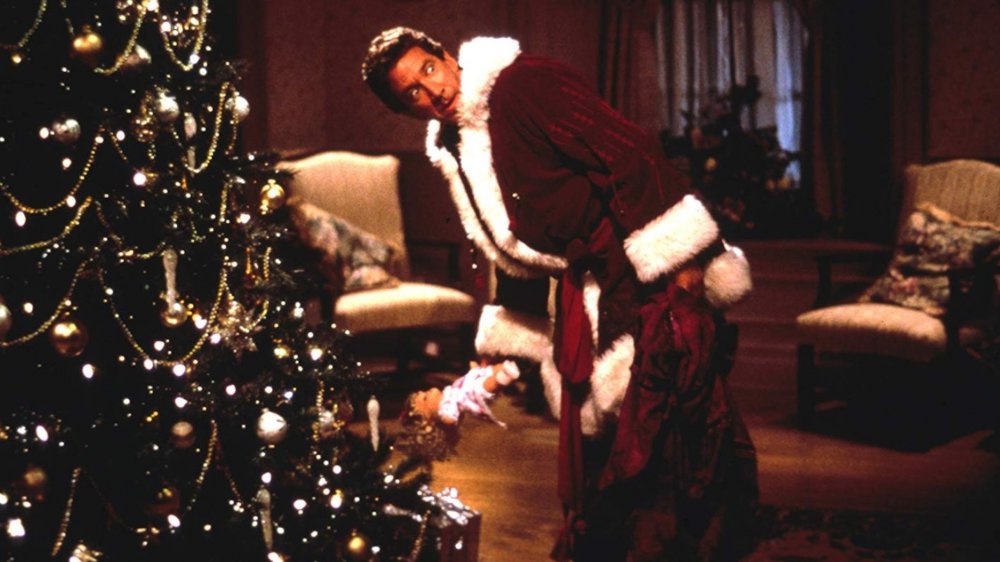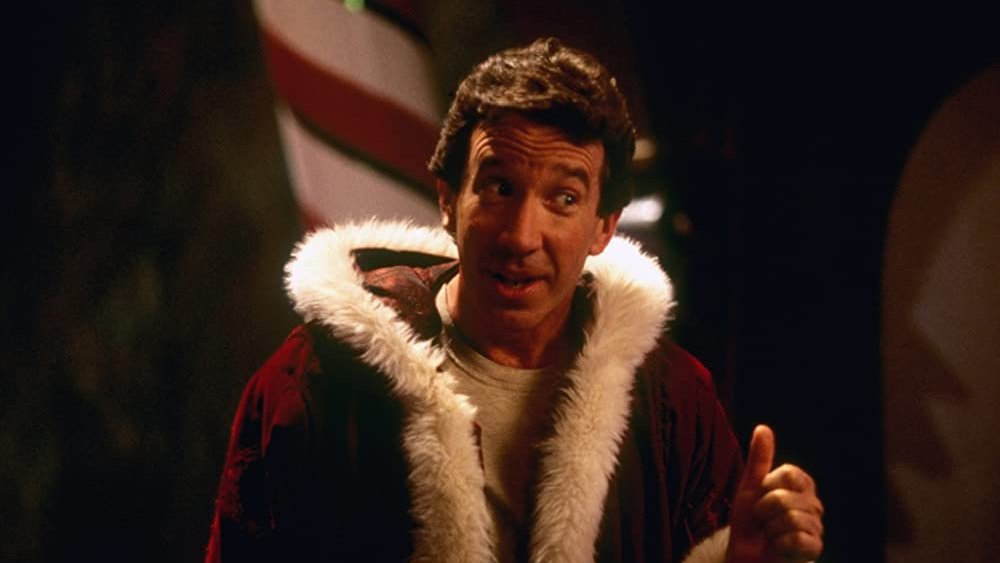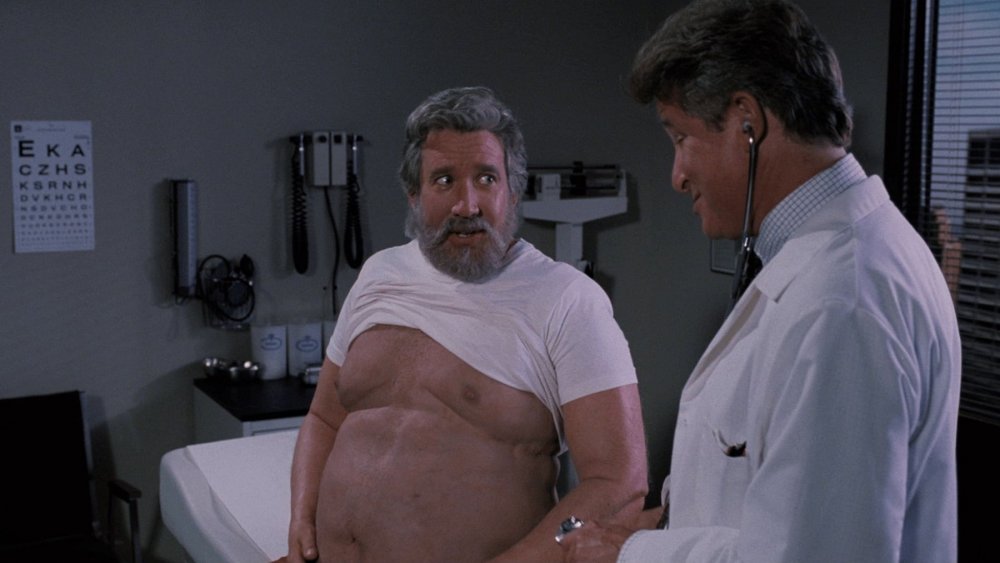Why Does Bernard Walk Funny Santa Clause 2
Things Only Adults Notice In The Santa Clause
In 1994, Tim Allen was riding the wave of hisHome Improvement success when he took his first starring role on the big screen as a man who slowly and unwillingly transforms into Santa. The Santa Clause has since become an essential part of holiday movie marathons around the world, and it's one of the most often-discussed movies in the Christmas canon. That's partly because, when you look at it a little too closely, some of its details fall apart.
Kids love the film because it's magical and funny and features some truly beautiful moments, but when adults watch The Santa Clause — even if they love it — they can't help but see certain strange details that come out when you really think through its logic and mythology. So, from the strange ambivalence of the elves to the disturbing implications of the Santa inheritance system, here are a few things only adults notice when they watch The Santa Clause.
A dubious contract
The central conceit of The Santa Clause is that if something happens to Santa, the next person who puts on his suit will inherit the mantle. The film works comedically because the person who happens to do that, Scott Calvin, doesn't really want to be Santa, but is guilted into putting on the suit by his young son Charlie (Eric Lloyd). Of course, the magic and spirit of Christmas eventually wins Scott over, but not after considerable struggle.
That struggle is the heart of the film, but this all raises an unsettling question: what if someone terrible had put on that suit? Scott can be kind of a jerk, but he's a decent person. What if a hardened criminal had gotten their hands on the suit and put it on as a disguise? What if they'd ignored or never even seen the reindeer? What if someone who murdered Santa intentionally, rather than accidentally, fell subject to the clause? It's a very inefficient system, and that doesn't even take into account the issue that the "contract" on the card is a trick involving fine print that no one could possibly be expected to read.
Ambivalent elves
Weird contractual issues aside, Scott does put on the suit, and manages to bumble his way through delivering a few gifts with Charlie before the reindeer take them back to the North Pole. Once there, he is greeted by... well, absolutely nothing. The reindeer simply run away to be taken to their stables for the night, then an elf shows up and — without saying a word — puts in a code to make the sleigh descend into Santa headquarters. As it does, we see elves looking up with various expressions on their faces, and then they just basically ignore their new boss as he hops out of the sleigh and starts asking questions.
When head elf Bernard (David Krumholtz) finally does talk to Scott, he seems annoyed that he even has to fill the new guy in, and the rest of the elves appear neither pleased nor concerned to see the new Santa walking around trying to get used to the place. What's perhaps more concerning is that none of the elves seem to care at all that the old Santa just died and vanished into nothingness. Did they really hate their old boss? Does this happen all the time, so they don't get attached? The North Pole, at first glance, feels like a pretty dour place.
Santa's past life
Speaking of the old Santa, the film never stops at all to address his past life, his legacy at the North Pole, or his influence over everything that happens there. We don't know if he was a particularly good or bad Santa. We don't know how long he was on the job. We don't know how well he got along with the elves.
This is avoided mostly so the film can get on with Scott's story, but elements of the overall Santa Clause franchise later suggest that it's important for Santa to get married and even eventually have a family. Did this Santa do those things? If so, what happened to his Mrs. Claus? Is she long dead? Did she retire from the North Pole upon his death? Was he too new on the job to even contemplate that? These are all things the story ignores in favor of a plot contrivance that allows an ordinary guy to become Santa after the old one — who can magically slide down chimneys, among other things — is defeated by slippery shingles. Something doesn't add up there.
No follow-up interview for Santa
Once Scott arrives at the North Pole and finally gets a little explanation from Bernard, the head elf seems to simply want to placate him rather than hit him with too many details. He tells Scott he's going to leave tomorrow morning and then sends him to his room to get some sleep. "Sleep on it and you'll learn more later" seems fair when you're thinking in terms of a daunting new job, but then Scott wakes up in his own bed back at home, with no memory of how he got there and, more importantly, no further instructions from the North Pole.
He writes it all off as a weird dream, but then his body starts to change in ways that are frankly horrific, and he still gets no word from the North Pole. The first piece of concrete information he does get from Bernard is "the list" in the form of thousands of packages stacked throughout his house. The point is supposed to be that Scott won't understand how to be Santa until he believes in himself, but that's not how Bernard and the elves frame it. They simply seem to look down on his ignorance right up until he's willing to embrace them, and that feels like a bad way to run a Christmas operation.
Parents just don't understand
The Santa Clause is a film that hinges on belief, and the central conflict involves Charlie's steadfast belief that not only is Santa Claus real, but that his father has now become St. Nick himself. This creates genuine, tragic problems within Charlie's family, as his mother, Laura (Wendy Crewson), and stepfather, Neil (Judge Reinhold), become convinced that Scott is making himself appear to be Santa in order to take Charlie away from them. This conflict introduces the classic Christmas story trope of adults not believing in Santa Claus like children do. Laura and Neil even discuss this while they recall the exact moments they stopped believing in Santa because they didn't get the gifts they asked for.
Here's the problem, though: the audience knows that Santa is real, and that means these families all wake up on Christmas morning to presents that weren't there when everyone went to bed. How do the parents feel about this? Is there some strange magic spell that convinces them they put them there? Do they simply forget which presents they bought and which ones they didn't? Are they just confused? It doesn't matter that much to the plot, but it would have been nice to get even a throwaway explanation for this, since the film spends so much time on the theme of belief.
The life of a covert elf
Most of the film takes place during the year between two Christmases, as Scott slowly but sincerely becomes Santa. One of the fun visual touches throughout the "real world" scenes is the way elves are hidden in plain sight. You can spot these little child-sized creatures by their pointy ears as they hang around the human world, watching Scott's progress and making sure the transition is proceeding.
At one point, during the career day scene at Charlie's school, you can even see one of them sitting in the classroom as a student. Now, most of the time the elves are just face in a crowd, and when they walk away no one really notices. This elf, though, sat in a classroom with pointy ears and apparently participated in at least one day of elementary school. Did he forge paperwork and invent fake parents to do this? Is he hiding his ears from the other kids through some kind of glamour magic? Does he answer questions and do homework too? This feels like it could be a whole other movie.
Santa and technology
When Scott discovers Santa's sleigh on his roof, it seems to be a very classic, simple interpretation of what Father Christmas' gear would look like. The suit is simple and cheerful, the sleigh is polished and classic, and the reindeer are... well, the reindeer. Everything seems to operate under the simple banner of "Christmas magic," and it all stays that way until the following Christmas, when everything gets an upgrade.
When Scott heads out for his first full Christmas Eve, his new sleigh is outfitted with everything from individual seats to a snowscreen, his hat has a two-way radio in it, and he's wearing a flame retardant jumpsuit under his coat. Plus, there's a whole team of elves with jetpacks waiting to assist him at a moment's notice. Did the old Santa just prefer to kick it old school? Were the elves just waiting to leap into the 20th century? Plus, Charlie tells his mother that he's helping the elves make the new sleigh right before Christmas. How long were they sitting on these ideas?
A weird police report
Speaking of those elves with jetpacks, they're known as E.L.F.S. (Effective Liberating Flight Squad), and they're called into service when Santa is arrested after attempting to do his Santa thing at Laura and Neil's house. Now, setting aside the idea that a man who can fit down any chimney somehow can't do anything about prison bars, the "elves with attitude" stage a very flashy and not-at-all covert extraction of their boss.
They tell the cop on duty that they're his "worst nightmare," wrap him up in ribbon, and shove a donut in his mouth. Then, they cut the door off of Santa's cell with some kind of high tensile strength "tinsel" and simply take him away. Never mind that these holding cells would probably have more than one cop hanging around. Now there's going to be a police report, and even probably some surveillance footage, showing a group of apparent children magically ribboning up a cop and abducting a guy dressed like Santa from a cell. Complex police work aside, that's going to make for some very weird meetings with supervisors after Christmas.
The existence of Scott Calvin
The Santa Clause, of course, has a happy ending, as Scott finally accepts his job as the avatar of Christmas joy and flies off to the North Pole having converted Neil and Laura to his cause and forged a loving, lasting relationship with his son. What the ending doesn't address is what happens to "Scott Calvin" the human man, with a house and a job and, presumably, a series of public records that include paying taxes, having a driver's license, and owning property.
Later films confirm that Scott still maintains his civilian identity in some form, as he occasionally arrives in the human world to visit Charlie, but we don't know the real extent of it. He could simply be showing up, introducing himself as Charlie's dad, and then going back home, but he also eventually does things like drive. When he met Bernard, Bernard told him he had 11 months to "get his affairs in order." Does that mean vanish his former self? Fake his death? Or does Scott Calvin now exist in this weird in-between world in which his identity is maintained only by diligent, paperwork-managing elves?
Family business?
At the very end of the film, Neil tells Charlie he would make a great psychiatrist one day. Charlie replies that he's going to go into the "family business" while he watches Santa's sleigh fly away. It's a sweet moment, if you disregard the fact that Neil is also his family and he just burned the poor man's life's work with that comment. It's also a weird remark to make in the context of the film's storytelling.
Scott became Santa because the last Santa died, and there are no other humans present at the North Pole. Does Charlie mean he's going to move up there and just live among the elves, or does he mean that he's just going to wait for his Dad to die and then take over his Santa suit? He's just a kid, so he's probably not really thinking this through, but if it's the former, how would adult life proceed for him in that context? If it's the latter, why would he want his now-magical father to die just so his career can begin? Just when we're starting to forget the dead Santa at the start of the film, Charlie has to bring this up these disturbing questions at the end.
What does Scott Calvin really want?
Scott Calvin has the advantage of being played by Tim Allen, an extremely charming actor who was one of the biggest comedic stars in America when the film came out. Look beyond Allen's quips and funny faces, though, and you see an often puzzling look at a man who doesn't seem to really know what he wants.
When we first meet Scott, he's charming all of his coworkers at an office Christmas party, which shows just how well-liked and endearing he can be. In the very next scene, he's lying to his ex-wife about where he is because he's running late to meet his son for Christmas Eve. In the scene after that, he's passionately defending his son's belief in Santa Claus, but he also seems annoyed when Charlie wants to actively engage with him in terms of Christmas as a holiday. Sometimes he seems defensive of Charlie because he genuinely loves his son, while other times it seems like he just wants to get back at his ex and her new husband. He's single, doesn't seem to have any hobbies, and though he works for a toy company, he seems to leave a lot of his sense of fun at the office.
Now if you're a kid, none of this really matters. You just want to watch Scott and Charlie go on their Santa adventure. If you're an adult, though, it's easy to be left with a question: What does Scott Calvin really want out of life?
Contractual origins
The Santa Clause is a relatively short movie, and it's not until the sequels that we start to get a little bit of a bigger peek into the whole mythology of the North Pole and the people who populate it. What we don't ever really get, though, is the answer to a question that kids probably don't care about, but any adult who's ever been part of a legal agreement probably does: Where did the Santa Clause come from?
When Scott returns in the sleigh, Bernard and the other elves don't really seem surprised that they have to train a new Santa, which suggests this isn't the first time a Father Christmas has died on the job or even just given up. We don't know how long the contract has been around, but we can infer (especially based on information in the sequels) that it's very old, so the Santa mantle has been changing hands for some time.
So... who wrote this contract? How did it become a hidden thing in the fine print of a little card? Who perfected the language? Why is it so immediate? Does the North Pole have a legal department? Clearly this thing is so ingrained because Santa needed to be replaced one time and the elves realized they had to create legal precedent, but we never get the full backstory for how that came about.
A strange doctor's appointment
Scott Calvin initially dismisses his role as the new Santa as a weird dream he had on Christmas Eve, but he soon finds that ignoring what he's going through has physical consequences. He starts to gain weight literally overnight, his facial hair begins to grow at a supernatural rate, and he develops an insatiable appetite for dessert foods of all kinds. When it gets to bad that he literally can't look in the mirror for 10 seconds after shaving without watching his beard grow back, Scott does what a lot of people would probably do in the same situation: He goes to his doctor.
After a thorough check-up, Scott's doctor delivers a healthy dose of optimism because, internally at least, Scott seems "healthy as a horse." He can't find anything medically wrong with him, so despite Scott's protestations, he basically just tells him to go home, eat less, and dye his hair. Now, this is clearly a busy general practitioner who just wants to calm his patient down, but a lot of adults watching the movie probably wonder why he isn't digging deeper, and why Scott isn't asking him to. If Scott had just offered to shave before the doctor's eyes, and the doctor watched the hair grow back, he could have had one of the biggest medical discoveries ever on his hands.
clelanddessitheigh78.blogspot.com
Source: https://www.looper.com/140451/things-only-adults-notice-in-the-santa-clause/
